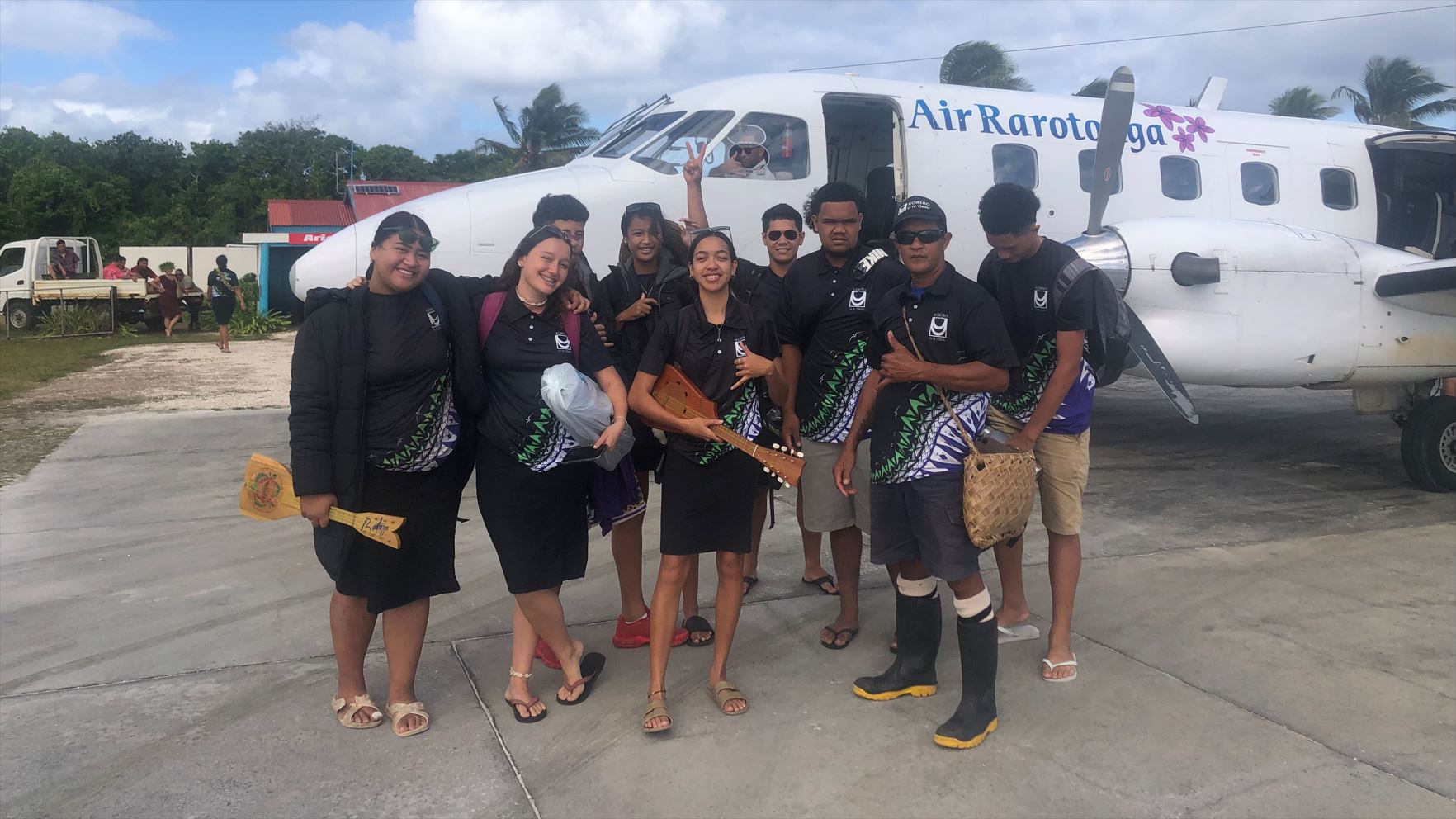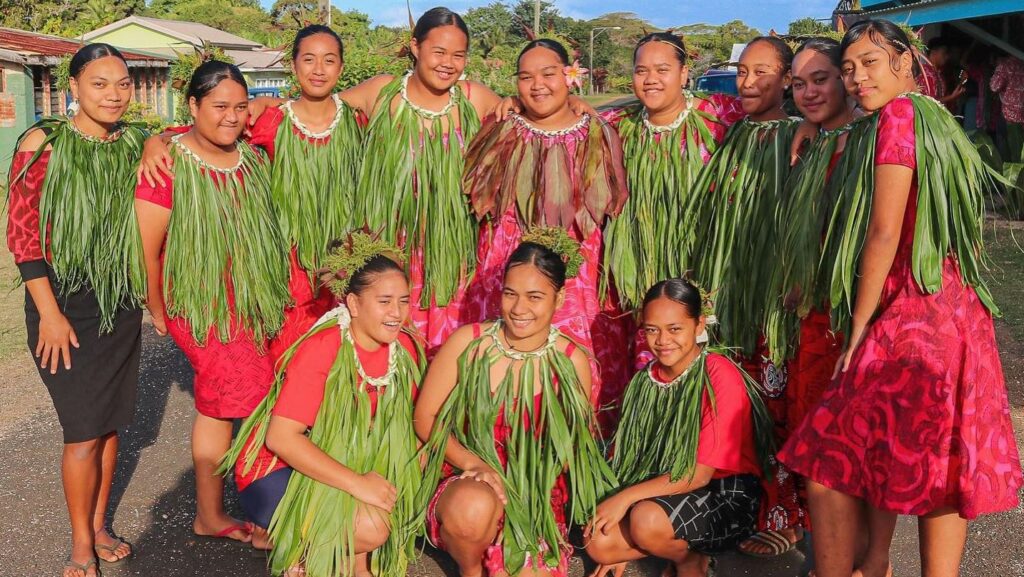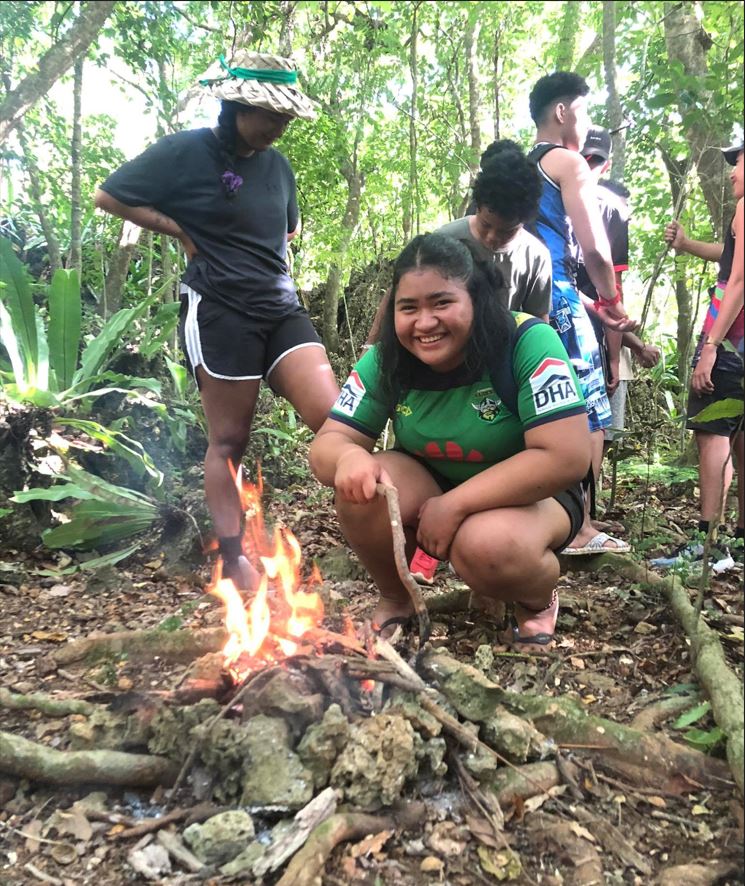Learning to live a subsistence lifestyle
Saturday 6 August 2022 | Written by Matthew Littlewood | Published in Culture, National

The first lot of Rarotonga students arrive at Atiu airport earlier this week. Photo: Kōrero O Te Ōrau (TIANA HAXTON)/22080531
A group of more than 40 Rarotongan students from an environmental advocacy group have been learning about the lifestyles of the people of Atiu, and sharing their own knowledge.
Kōrero O Te Ōrau Inc executive member Jackie Rongo said it hoped to have this project as a long term one.
The Rarotongan students engaged in a wide variety of activities, including learning local fishing methods, culture programmes, education sessions, pig hunting and some free diving.
“We saw this as an opportunity to bring our youth from Rarotonga to Atiu and collaborate and share information,” Rongo said.
“So our youth would learn about Atiu, and the ways here, and the history done in the context of Atiu. What we would bring is the scientific lessons that our students have been learning.
“This is teaching in the context of the people, and sharing knowledge. You find that in the outer islands, some of the kids who might be seen as trouble-makers actually have a very wide and practical knowledge of their environment, especially when it comes to fishing.”
Rongo said the organisation had also visited Aitutaki in the past, but Atiu has been the first programme working very closely with the island’s youth.
She said two youth leaders in Atiu, Joshua Jim and Maui Matakino, had been showing the Rarotongan students how to live in the subsistence lifestyle.

“They live in the traditional way, Joshua is a planter and fisherman, he works with a lot of the elders on the island,” Rongo said.
“They’ve also been working with the youth of Atiu to teach them healthy habits. This is valuable for all young Cook Islanders – sustainability is the way forward.”
Rongo said the project had also linked up with Climate Change Cook Islands to collect further information on traditional fishing practices in the outer islands.
Kōrero O Te `Ōrau Inc had previously hosted a trip to Aitutaki, but participant Reeana Aviu, 18, said this trip had been better.
“I think this trip to Atiu is going better than our one to Aitutaki because in Aitutaki we didn’t really get to mingle with the youth, but here we are actually in mixed groups with them so we get to make new friends and learn from each other,” Aviu said.
“It’s really interesting seeing the culture and traditions here and how different it is from Raro life”
Atiu participant Henry Mingi, 17, said he enjoyed the programme.
“Every day we are learning new stuff,” Mingi said.
“I made new friends with the Rarotongan kids. We’ve never been in a programme like this, hopefully we can keep doing it, so we can remember our ancestors.”
Participant 15-year-old Nuku Mahuta said he had learned a lot.
“They teach you a lot of stuff. In the past couple of days, I’ve learned what a fish looks like, how to make a trap, which is the right crab to eat. I just realised right now that I really like crayfish,” Mahuta said.
Programme lead Winton Herman, 21, said the experience was “stupendous”.
“It’s interesting to see the dynamic of the Rarotongan and Atiu kids,” Herman said.

“This programme is very important for our kids because it does holistic learning through cultural and scientific experiences. Here they’re learning through Atiu culture through fishing and hunting, and also the science side through Dr Teina Rongo.”
Kōrero O Te `Ōrau Inc chairman and marine biologist Dr Teina Rongo said in the upcoming months, the organisation would be visiting Mangaia to undertake similar activities.
“There’s going to be a three-way sharing of knowledge ... between the islands. That’s the long-term plan moving forward,” he said.
- Additional reporting from Tiana Haxton of Kōrero O Te `Ōrau Inc














































